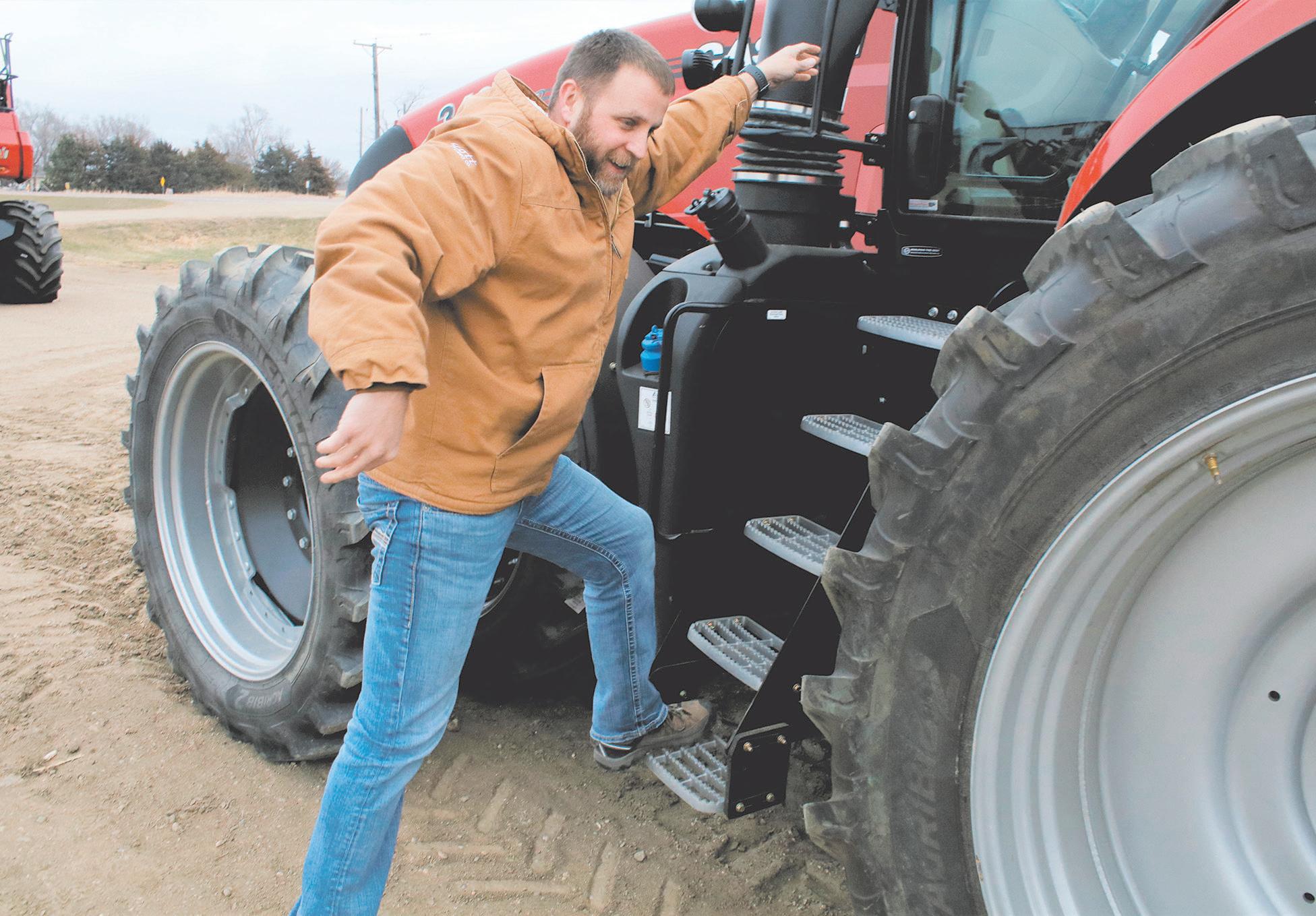
4 minute read
Sales Drive on for Equipment Dealers
Business has been steady for SD ag implement outlets despite pandemic
Sam Fosness / South Dakota Farm and Ranch
While the pandemic has impacted the agriculture industry, the ideal harvest conditions and increased crop prices in South Dakota have helped implement dealerships stave off what could have been otherwise a rough year.
At Scott Supply in Mitchell, business has remained steady for the Case IH dealership throughout the pandemic. Owner Chris Scott said the favorable fall harvest weather paired with the recent uptick in crop commodity prices have helped drive sales all year long.
“With everything that’s been going on in the world, we’ve actually been doing well this year, staying in line with the type of business we see on a yearly basis,” Scott said. “Don’t get me wrong, coronavirus impacted the way we do business, but it’s been business as usual for us.”
As an agriculture dealership, Scott knows his business is largely predicated on the success that farmers have in the fields each year. When crop prices began to jump in the midst of harvest season, some increasing by more than $1 to $2 per bushel, Scott said it sparked more optimism to end the year on a high note.
In early September, corn prices in the Mitchell area were around $2.90 per bushel. Over the next two months, the price climbed to $3.85, as of Dec. 2. Soybeans saw an even larger increase over the same timespan, as prices spiked from $8.80 to $10.94, as of Dec. 2.
“When the farmers are hurting, we’re hurting. The excellent crops and great harvest have helped keep business strong, and I’m optimistic for it to continue,” Scott said. “Commodity prices have been getting better as well, so that’s had a positive impact on us.”
After surviving through South Dakota’s wettest year on record in 2019, Jeff Hruby, a Scott Supply salesman, said last year’s inclement weather had more of impact on sales than the virus has this year.
“Those years when we have really bad weather and wet conditions are harder on sales than the virus has been,” Hruby said. “The type of weather and crop prices have more of an effect because it directly cuts into farmers profits.” Continued on page 6
To give a glimpse of the improved crop conditions that South Dakota farmers enjoyed this year, according to the United States Department of Agriculture’s Nov. 9 crop report, farmers had 92% of the state’s corn crops harvested, marking a 56% increase from the same timeframe in 2019.
The crop conditions that made for much better yields this year helped farmers rebound and boost their income, which means more business at the dealerships.
“It was such a tough year with all the rain last year, and many farmers took a hit. So many of our customers had to dry their grain last year, which can be a big expense. Scott said. “But most of our customers never had to dry any of their grains and corn this year. Not having to spend the excess money on grain drying helps their bottom line.”
After the historic flooding that took its toll on the agriculture industry in 2019, Mike Plooster, manager of C&B Operations in Corsica, was relieved to put that year behind him. Then COVID-19 hit.
In the midst of being faced with yet another challenge this year, Plooster said the dry weather and unexpected uptick in crop prices during fall harvest was a blessing for the farming community. Without those blessings, Plooster said sales would have likely taken a hit.

Jeff Hruby, salesman with Scott Supply, shows off a tractor on Dec. 2 that the Mitchell dealership added to its inventory at the shop
Sam Fosness / South Dakota Farm and Ranch
“With commodity prices ticking up the way they have over the last two months, which is a rarity, business has naturally picked up with it,” Plooster said. “The nice yields and commodity prices jumping during the harvest season has definitely created some positive energy in the farming community, and hopefully that will continue to reflect in our sales before we end the year.”
Like many dealerships, C&B Operations takes part in farm shows each year that provide an opportunity to showcase their agriculture equipment. But that all changed when COVID-19 came into the picture, which prompted the cancellation of many agriculture events this year.
Perhaps the most notable event that was cancelled this year was Mitchell’s Dakotafest, canceled for the first time in its 25-year history. While the lack of events had an impact on business, Plooster said it was minimal considering farm shows aren’t a big sales driver.
“Those events like Dakotafest are more of an opportunity for us to connect with our customers and showcase our equipment, which still does impact us,” Plooster said.

Jeff Hruby, salesman with Scott Supply, shows off a combine on Dec. 2 that the Mitchell agriculture equipment dealership added to its inventory.
Sam Fosness / South Dakota Farm and Ranch





